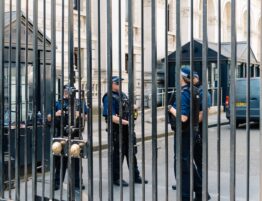
15 July 2020
As many readers will know, it used to be the case that Ankara Agreement businesspeople could qualify for settlement after four years. But then, in 2018, the law was changed, such that they could only qualify after five years – this incidentally brought the Ankara Agreement rules into line with those for other working visas.
But the Alliance of Turkish Businesspeople (unsurprisingly) did not like this, and they took out a judicial review application in the High Court. The change in the rule was, they said, wrong and unfair. The High Court in its decision – which was published in early 2019 – was to some extent sympathetic to the Alliance, but not to the extent that they would have liked, and they were unsuccessful.
The Alliance appealed to the Court of Appeal, which has now made its decision.
A basic legal issue in this case had been whether the “Standstill Clause”, which is part of the Ankara Agreement, precluded the Home Office from changing the rules about settlement. The Standstill Clause says that the Home Office cannot introduce “any new restrictions on the freedom of establishment and the freedom to provide services”. But did the rule change really meaningfully create such “new restrictions” – ie did it really inhibit the ability of affected migrants to conduct business in the UK?
There was also another set of questions and, by the time the case reached the Court of Appeal, the focus was on these: had the Home Office promised affected migrants that they could rely on a four-year route to settlement and, if it had, should it be allowed to break its promise? (To put it in rather more formal terms, did affected migrants have a “legitimate expectation” about this?)
In the High Court the judge had decided that there had been a legitimate expectation but nonetheless it had been appropriate and proportionate for the Home Office to change the rules. Things got rather complicated in the Court of Appeal, because the Alliance appealed against the High Court’s decision that the rule change was proportionate but the Home Office appealed against the High Court’s decision that there had been a legitimate expectation in the first place. (As sophisticated lawyers will know, this is called a “cross appeal”.)
As is sometimes the case, a different court came up with a completely different understanding from the other court. Some people find this confusing because, after all, judges all have a similar sort of education and, in most cases, similar backgrounds. But judges are not computers, and it is often the way of the legal world.
The Court of Appeal disagreed with the High Court, and decided that there had not been legitimate expectation within the legal meaning established by previous caselaw. But, on the other hand, it also disagreed with the High Court’s assessment about the proportionality of the Home Office’s rule change. So the Court of Appeal’s view was that if legitimate expectation had been established then the Home Office’s action would have been wrong.
But this did not a help the Alliance a great deal because the way that this area of law works is that first of all, before you can rely on arguments on proportionality, you have to establish legitimate expectation. So the Alliance was unsuccessful again.
This must have been very frustrating for them. In a case like this, which although they lost they did not at any stage lose completely, it might be very tempting for them to try and appeal to the Supreme Court. So this story may not be finished yet. If they are able to appeal to the Supreme Court, it must be at least a possibility that the four-year settlement rule will be reinstated.








